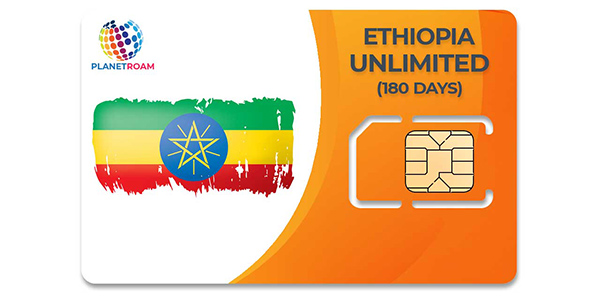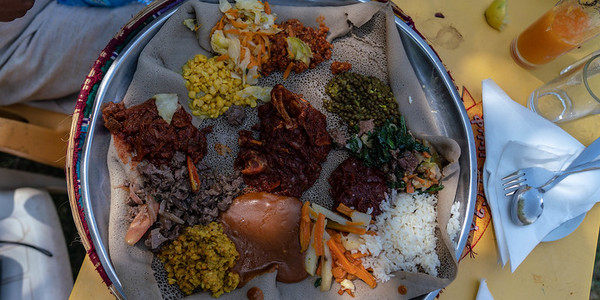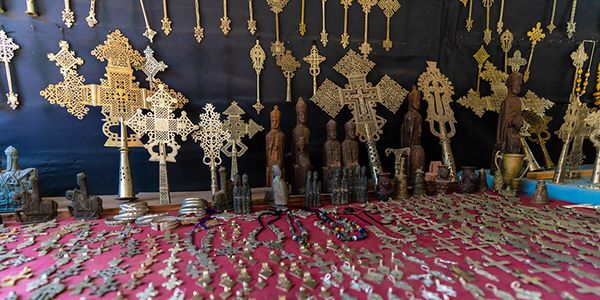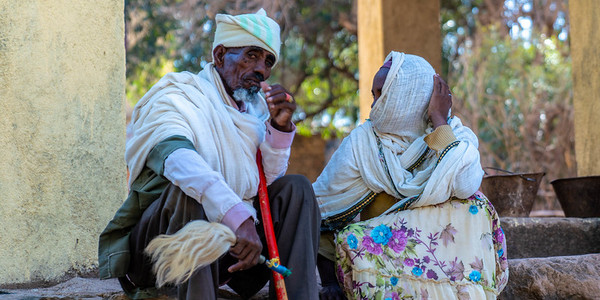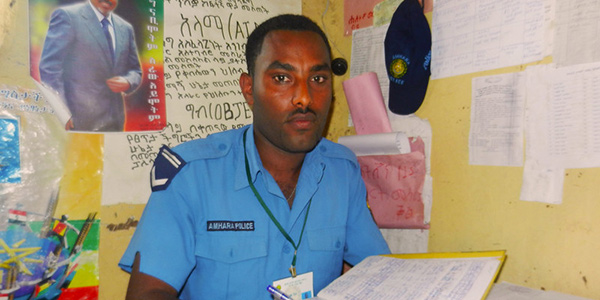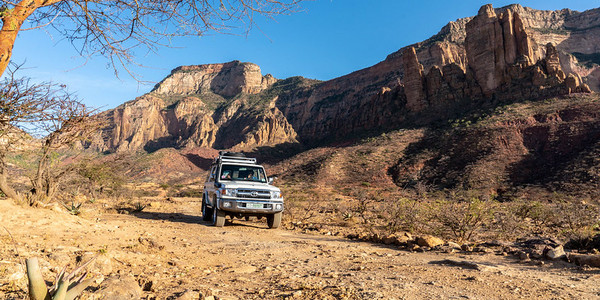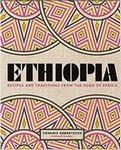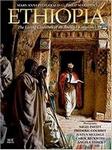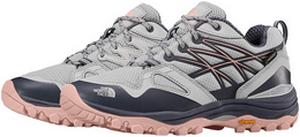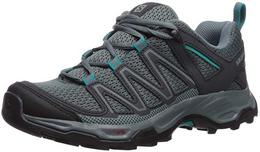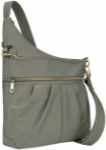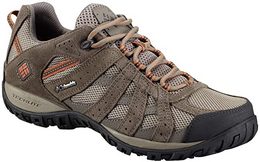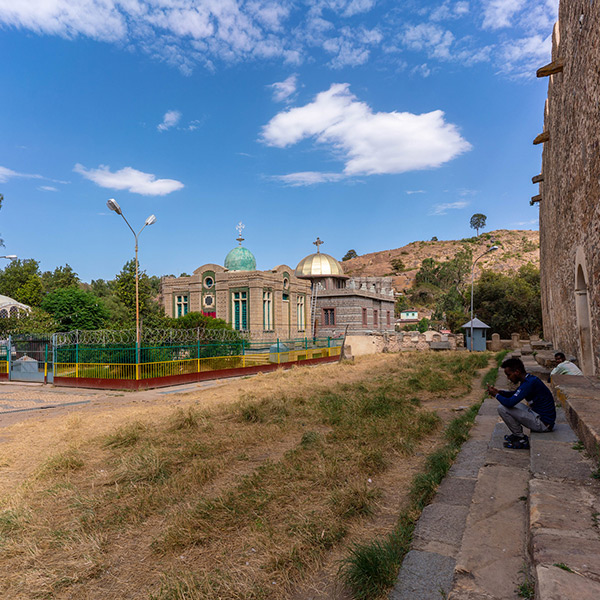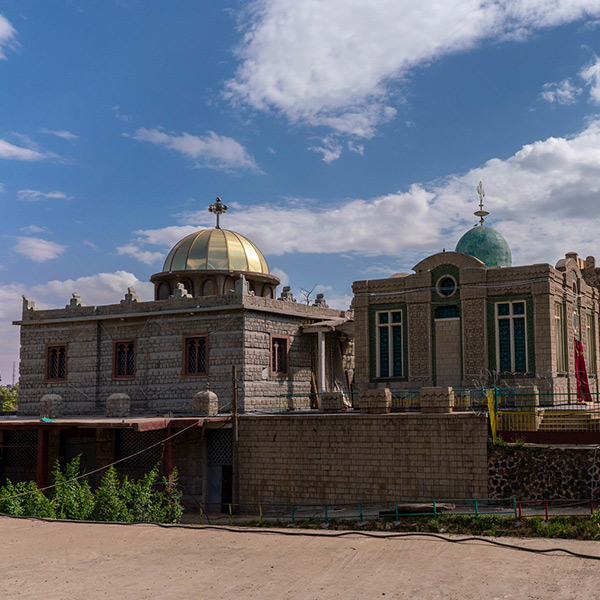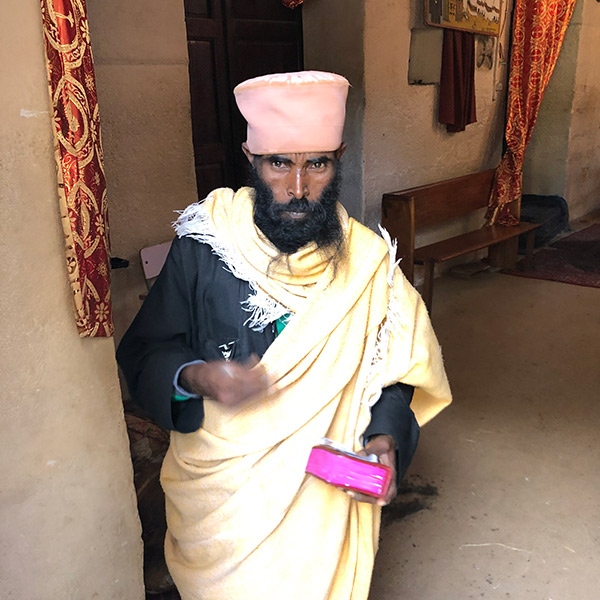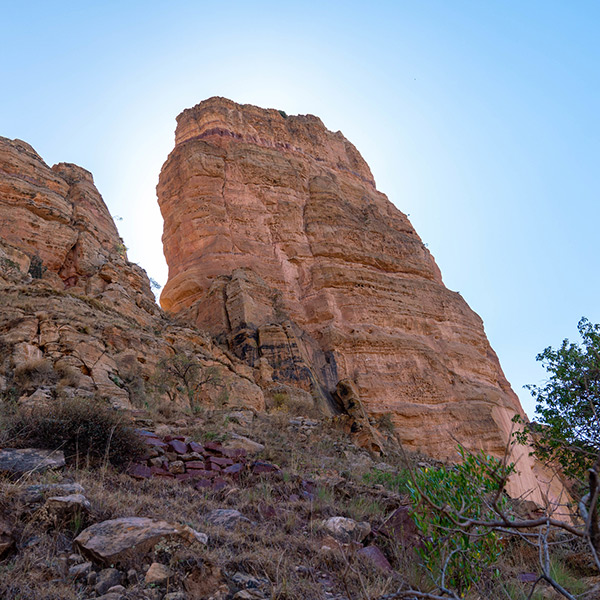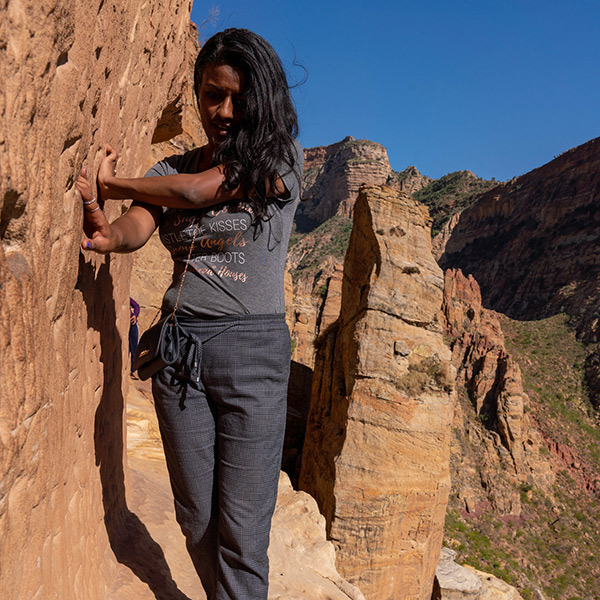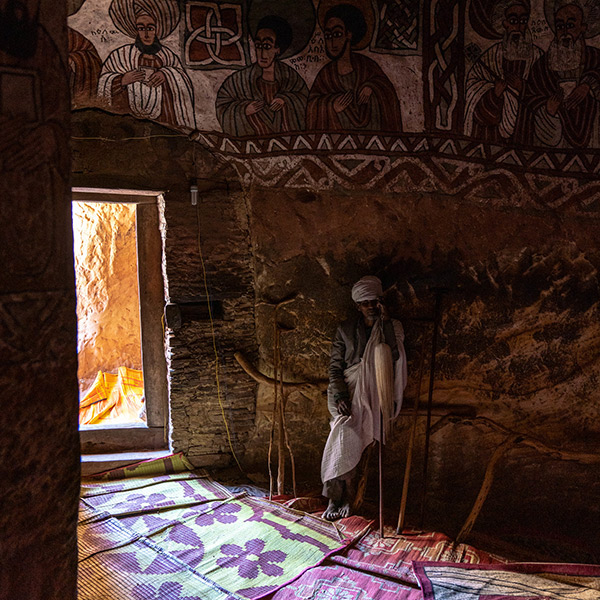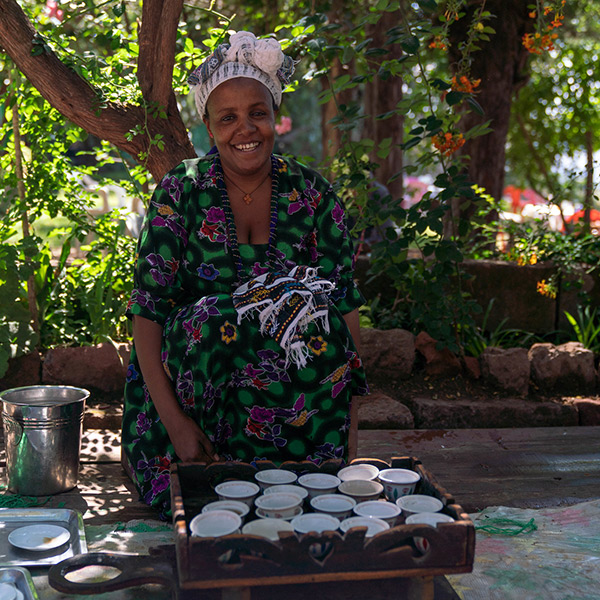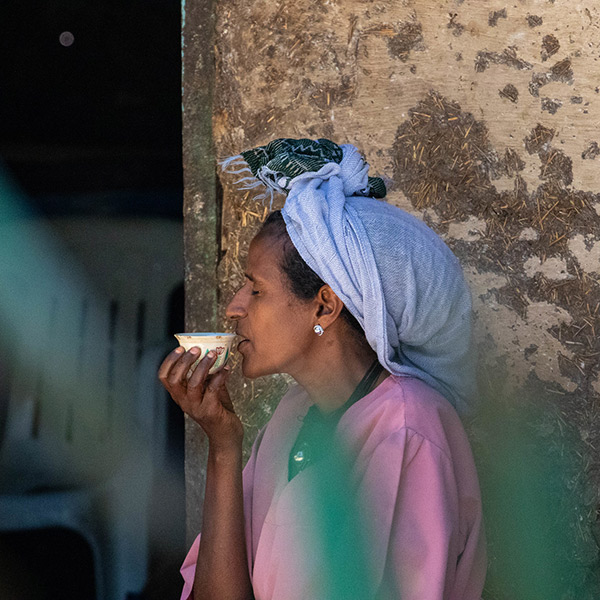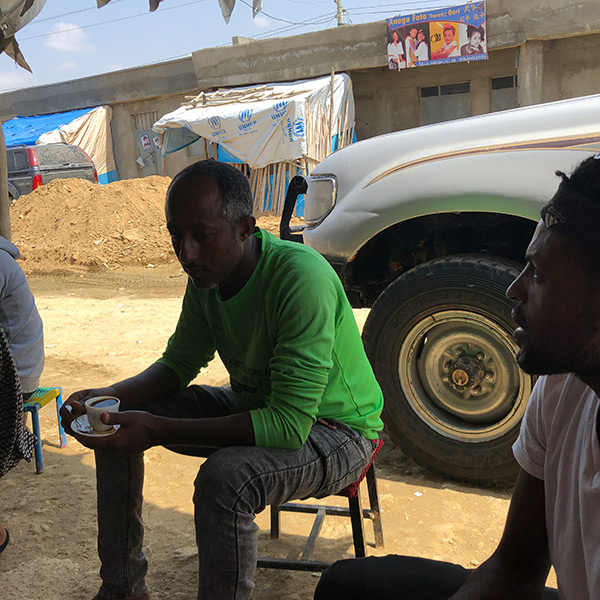Sidebar Menu
Ethiopia
Ethiopia is one of a kind. The birthplace of humanity, the cradle of civilization, the oldest country in the world. The place which over 80 ethnic groups and tribes call home, living in their own time: Ethiopia has its own calendar, as it does its own alphabet.
Rather than one distinct culture, in Ethiopia, you will find a beautiful patchwork of many intriguing lifestyles, landscapes, and eras. With more UNESCO sites than any African country, vibrant tribal life and nature which leaves nothing to be desired, Ethiopia is a lesson on the beauty of our world.
- Explore the bountiful sacred sites, from the rock-hewn Lalibela churches, the mosques of Harar, to the Wolleka Falasha Jewish village.
- Savor unique landscapes, like the boiling salt ponds of the Danakil Depression and the lava lakes of the Erta Ale volcano.
- Enjoy wildlife: spot endemic gelada baboons in the Simian Mountains or feed hyenas in Harar.
- Explore the fascinating tribal culture in the UNESCO-listed River Omo valley.
- Find the source of Blue Nile and the powerful Blue Nile Falls on Ethiopia’s largest lake, Tana.
THE
WORLDS OF
ETHIOPIA
Perfect For

Culture

Architecture

Nature

Photography
Itinerary ideas
What to Expect
What to pack
In The Media
Best to combine with
This part of the world is full of wonderful, undiscovered riches so any of the countries surrounding beautiful Ethiopia is a treasure trove of experiences on its own.
Sudan
One of Africa's safest but least visited countries, Sudan is a short flight away from Addis Ababa.
Eritrea
A blend of unique architecture, stunning coral reefs, and friendly locals, makes Eritrea one of the most exciting hidden destinations on the planet!
Kenya
Epitomizing Africa with amazing wildlife and stunning savannah landscapes.
Quirks for the Curious
Vanishing Worlds
Vanishing Worlds
Connect With Us
© Copyright 2020 - 2025 Vanishing Worlds
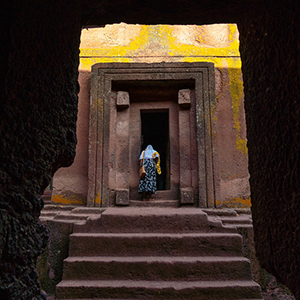
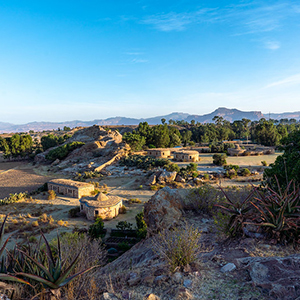
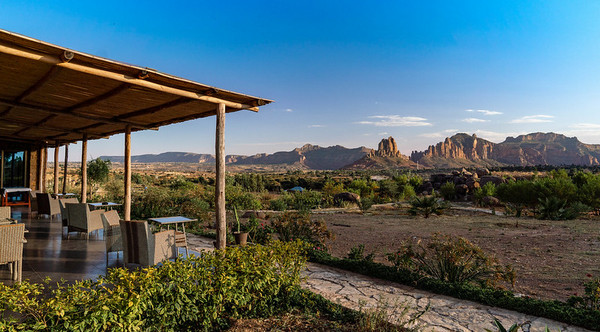
.gif)
